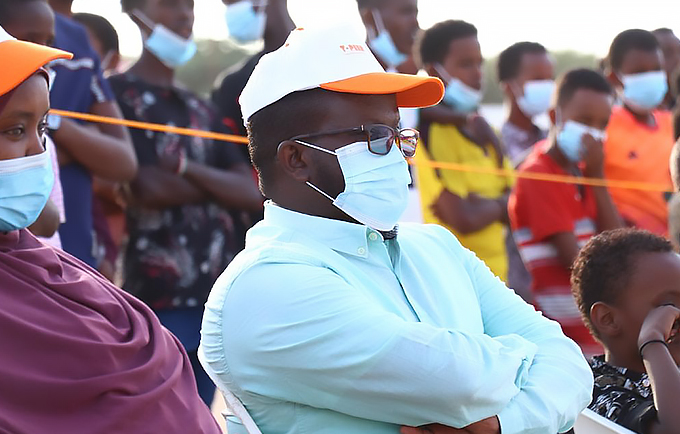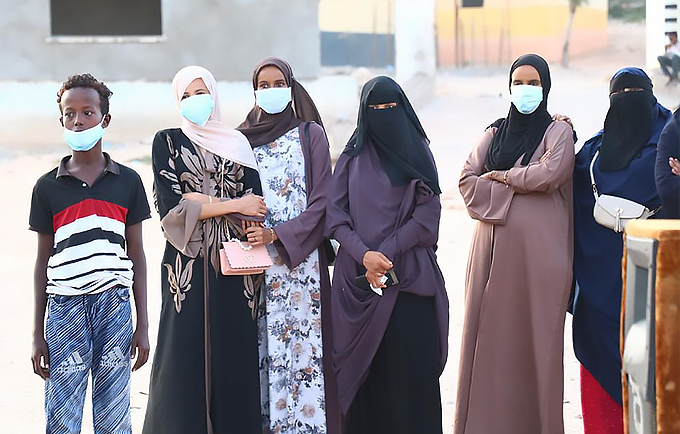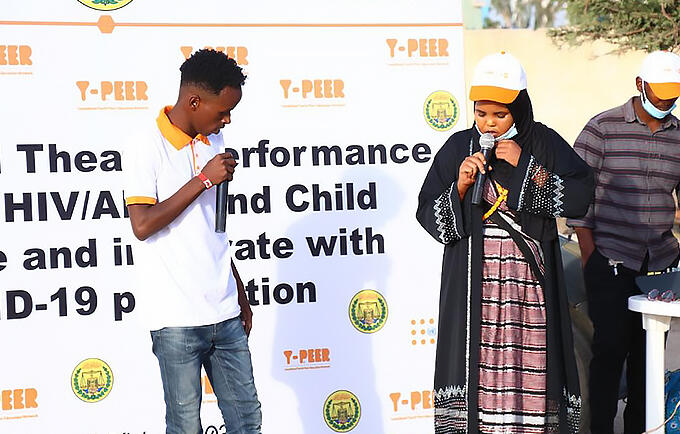Abdisamad Yusuf, 12 years old, lives in State House, one of the biggest settlements for Internally Displaced Persons (IDP) in Somaliland. There is not as much entertainment in the camp. “I always look forward to the theatre performances that are conducted close to State House. The interactive theatre performances are my favourite,” says Abdisamad.
Displaced children usually find it challenging to access essential services, including housing, protection, education and entertainment. Many young people are overlooked in turbulent times of disaster and conflict. Traumatized, constrained by tradition, torn from school and family structures and familiar social networks, they can be lost in the crowd in a disrupted community
UNFPA works with the Youth Peer Education Network (Y-Peer) in Somaliland using “theatre in education” for a purpose beyond entertaining young people, including those in IDP settlements.

UNFPA team in the youth programme watching the perfomance
“This purpose is generally to change the knowledge, attitudes, or behaviours of audience members. The goal of theatre in education is to improve young people’s reproductive health, to prevent HIV, and to reduce the stigma and discrimination that come with an unintended pregnancy or HIV infection,” explains UNFPA Programme coordinator for youth and innovation Ms. Fatuma Kuno Muhumed.
She says the use of theatre is aimed at changing social norms. “The theatre performances are effective as young people do them for young people. Nowadays, the performances integrate COVID-19 prevention messages,” says Ms. Muhumed.
The boy, Abdisamad, was personally engaged during the interactive educational theatre performance that took place in Hargeisa on 24 June 2021. One important technique used in interactive theatre is where young people are asked what their take-home message is. “I learnt a lot from the interaction. For example, I learnt about the importance of ending child marriage and promoting education for children and youth,” says Abdisamad.

a group of youth captivated by the perfomance in Hargeisa
During the event at the 31st May School in Hargeisa, a poem with the key message on COVID-19 was narrated by a young man, Abdirizack Abdirahman, with a mastery of the Somali language in between key messages. The adolescents and youth present were also entertained with acrobatic and Somali music and dance known as “Danto”.
The different entertainment approaches usually increase the concentration of the young people as they get educated on key messages.
Ismail Ahmedyasin, Somaliland Y-PEER Advisory Board Chairperson, emphasized the importance of access to health information for young people and girls’ education to prevent them from early marriage and other harmful cultural practices.
---Abdiaziz Farah



